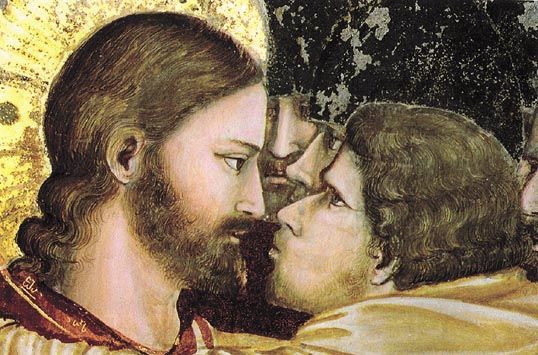Rejecting Christianity in Three Easy Steps
This is a guest post written by Leighton Knapp, friend of Many Horizons. His own blog can be found here.
While the majority of people in our western world renounce the Christian faith, it seems plain enough that most do so without tangible reason. The justifications most commonly offered by contemporary atheists, agnostics and new age spiritualists to explain their misgivings typically correspond with a popular rhetoric which insists that Christianity operates on one hand as a soothing opiate and on the other as a weapon of corruption and anti-enlightenment.
Critics will point to examples of err and abuse performed in the name of Christianity to demonstrate that it is a faith worth rejecting. But, of course, examples such as the medieval Crusades or instances of individual sin committed by religious authorities hardly constitute an overarching basis by which to deny the truth claims of Christ’s Gospel.
It thus seems fruitful to lay out three basic principles – or assertions of truth – which have been essential to Christian understanding since the early church (I thus exclude fundamentalist and otherwise schismatic movements) in order to provide a kind of preliminary checklist to assist skeptics in affirming their dismissal of the faith. Other points could certainly be added, as this list is a most basic litmus test. But if one can provide clear and comprehensible rebuttals to these claims, it seems reasonable to relegate Christianity to the dustheap of history.
The three claims to be rejected are as follows:
1) Christianity Provides the Cosmic Fulfillment to the Great Myths – It is in the DNA of all peoples and cultures to tell stories that seek to explain reality and reveal the meaning of things. This happened well before the person of Jesus Christ and has continued ever since. But what is fundamentally unique about Christianity is its appeal to broad groups of people as not only the greatest of all stories, but as the story through which all others are judged and brought to light. The person of unbelief would be wise to examine the nature of this phenomenon. The fact that a story is compelling does not necessarily make it true. But it would be less than diligent to assume that numerous cases of mass delusion best account for an eclectic assortment of cultural fairy tales, folk legends and forms of sacred worship to converge on this one definitive story. (The reader is advised to take up G.K. Chesterton’s Orthodoxy. Click here for a helpful summary.)
2) Christianity is the Pure Manifestation of a Material-Spiritual Synthesis – Many paths seek balance and moderation, but Christianity is unprecedented in its claim – as expressed here by St. Athanasius – that: “God became man that man might become god.” While some faiths (Islam, Judaism, Mormonism) have a fundamentally materialist worldview and others (Hinduism, Buddhism) elevate the spirit, Christians believe in the doctrine of transfiguration. Christ came not to establish an impenetrable political earthly kingdom, nor did he strive to liberate people from their physical bodies or material environments. He came as God incarnate to participate directly in creation: to conquer death by death. For Christians, transfiguration is the culmination of divine embodiment. All of reality is infused with spiritual energy: thus the only kind of death that really exists is spiritual death – that of ignoring the energy of God who dwells with us and is present within. Those who feel like slaves to material wellbeing and pleasure, or conversely, to transcendence without particularity are advised to thoroughly investigate the tradition to determine whether there is in fact substance to this claimed synthesis. (Aleksandr Solzhenitsyn’s 1978 Harvard address is a fine starting point. If in finding his speech unconvincing, you may have little additional homework.)
3) Christianity is Beautiful – From the catacombs to Christendom to communism, it has been the practice of the church to produce art, architecture, literature and music on scales that have no apparent equals. Beauty is integral to everyday life and has established traditions of worship that strive prominently to reflect the heavenly realm. Rather than dogma or the sword, beauty is Christianity’s secret weapon. No subjects – including human flesh, the natural environment or the angelic sphere – are off-limits; and there is a harmony between the masculine and feminine qualities that is unparalleled in the other dominant religions and ideologies of the world. Beauty abounds wherever Christianity takes root. It would be worthwhile for anyone believing that truth cannot be divorced from aesthetic to come to terms with the momentous creative achievements of the church. (If John O’ Donohue leaves you indifferent, you’re probably at the finish line.)
I will leave it to the reader to determine whether or not this three-step process of rejection is “easy”. But it should be added that most Christians, let alone pagans and the like, will probably benefit from thorough investigation. The great tragedy in my estimation is that many fear the depths of their own faith, leading others to presume that the fount is dry.
Leighton
Latest posts by Leighton (see all)
- Rejecting Christianity in Three Easy Steps - March 10, 2014


